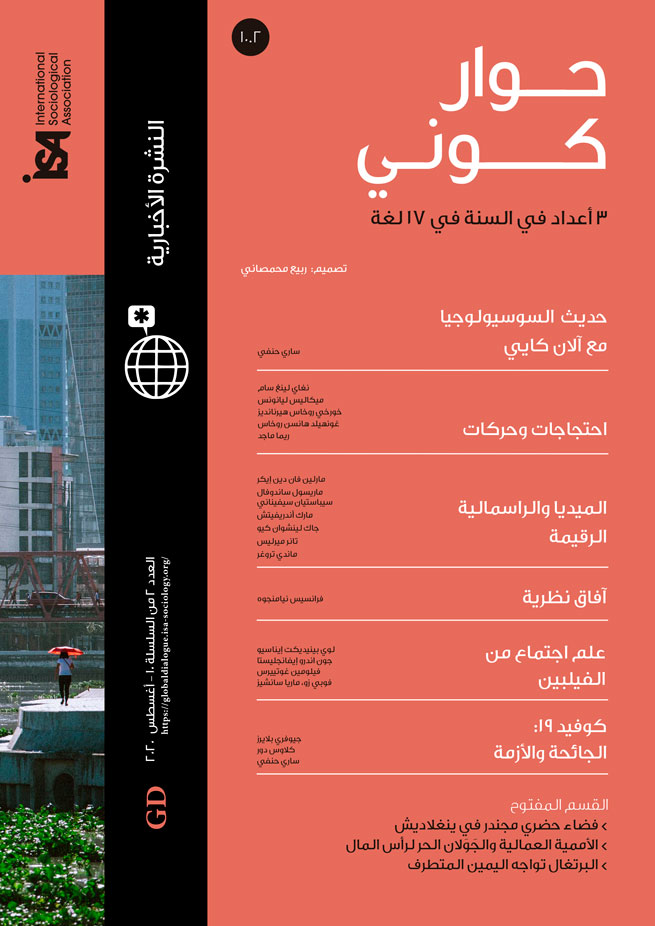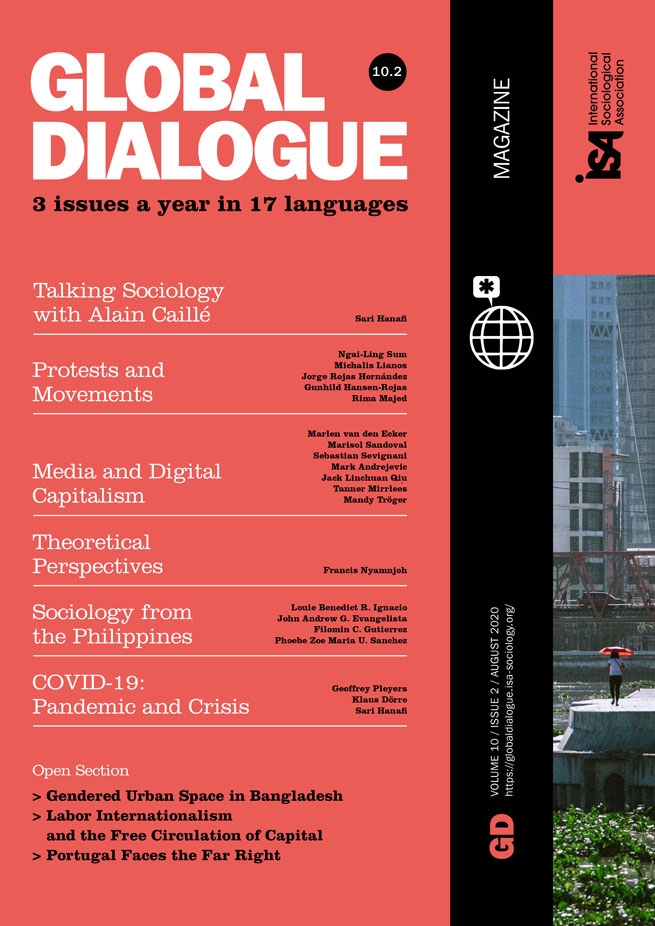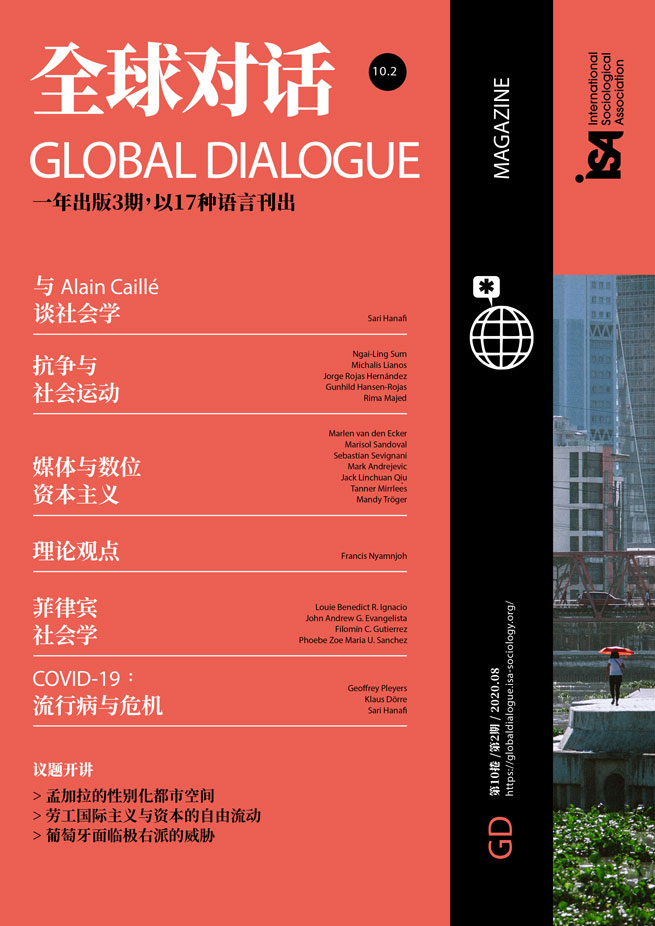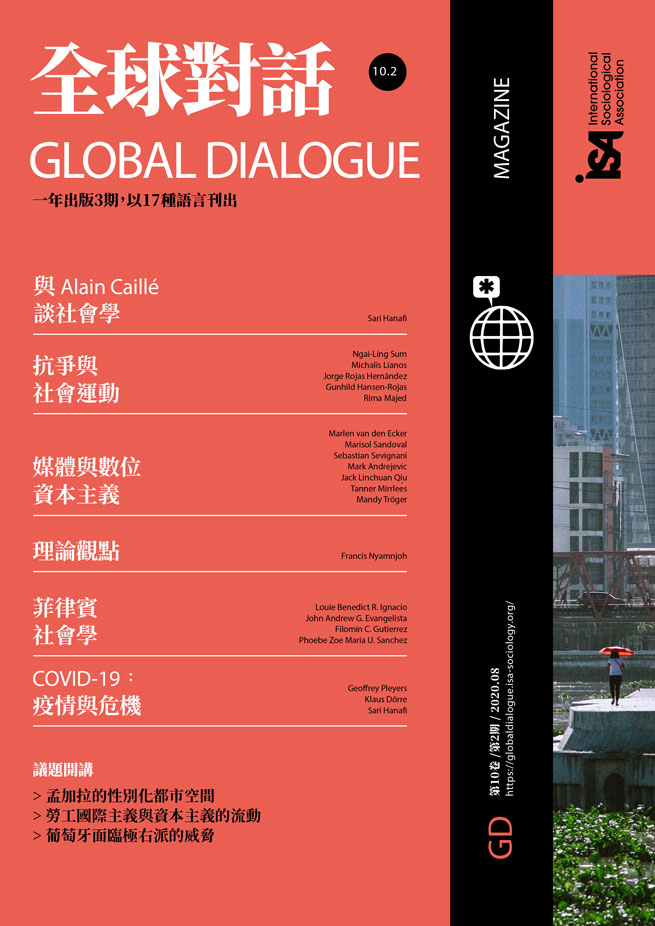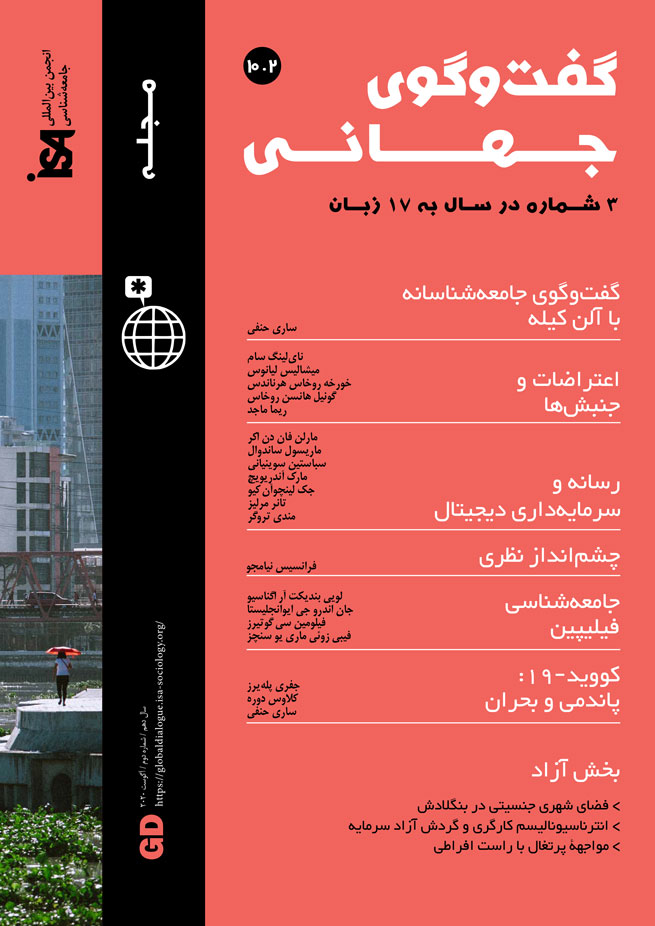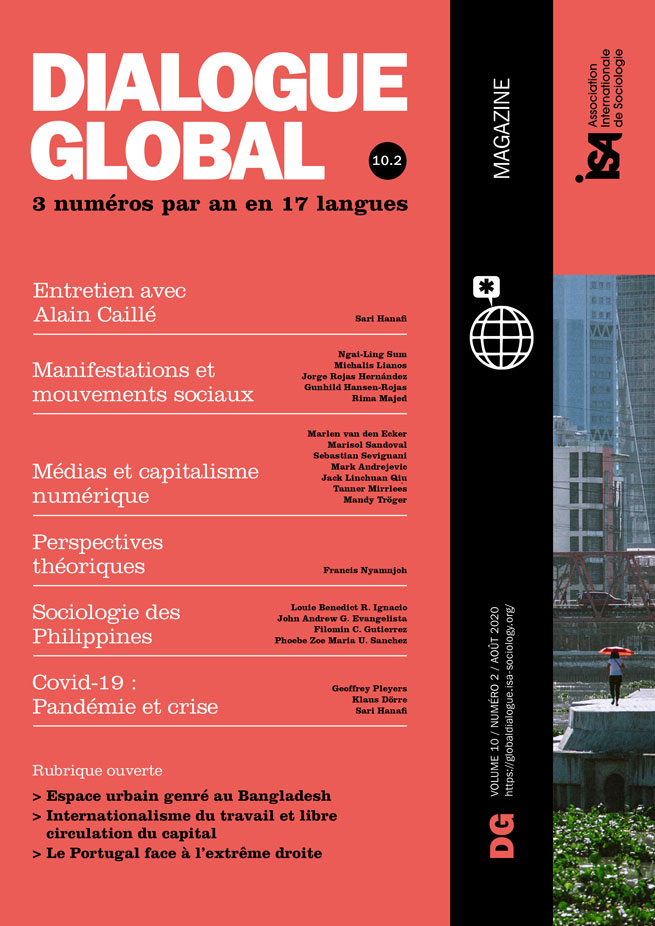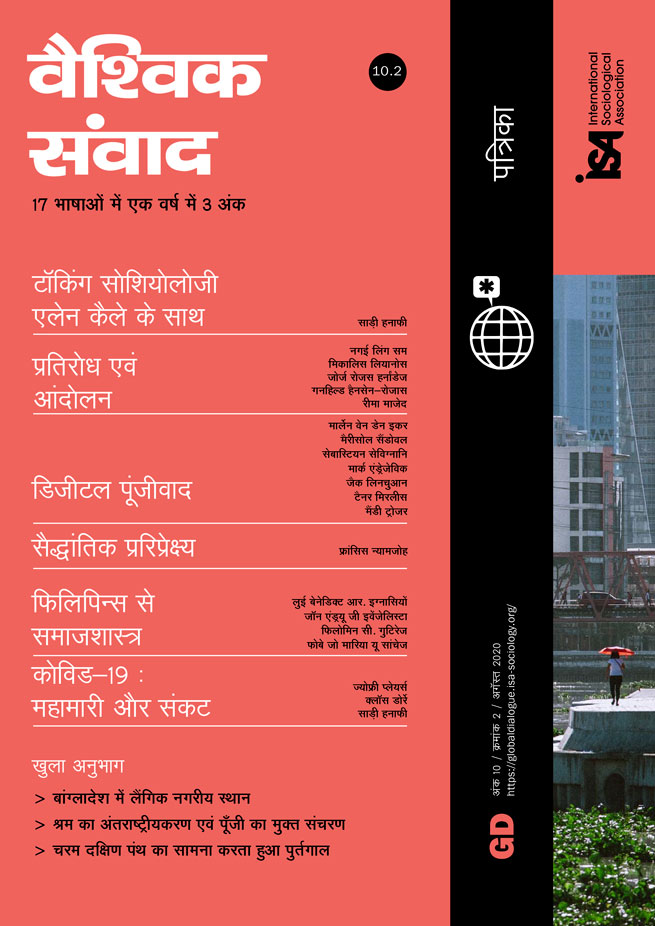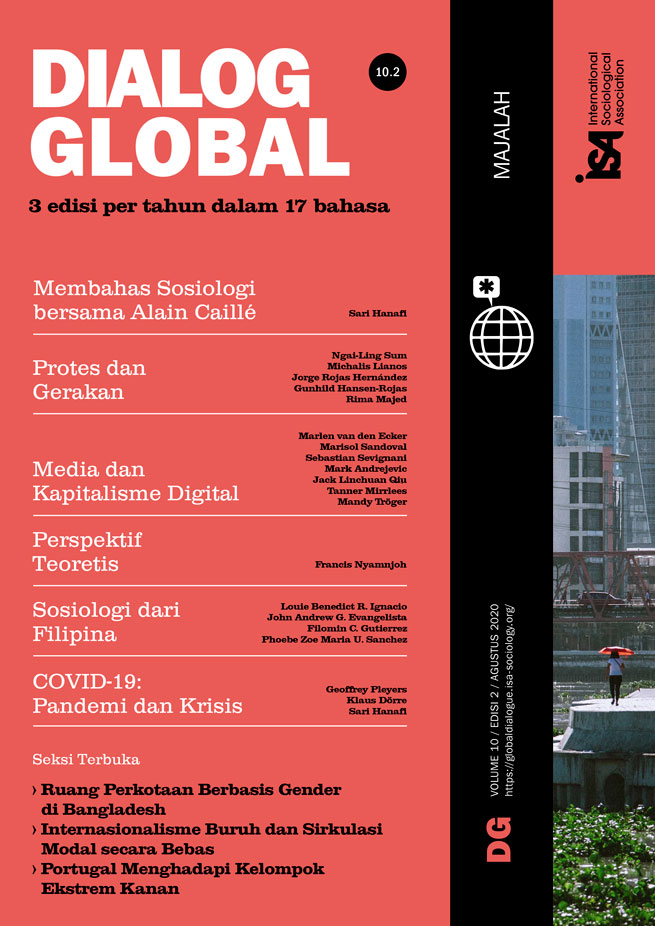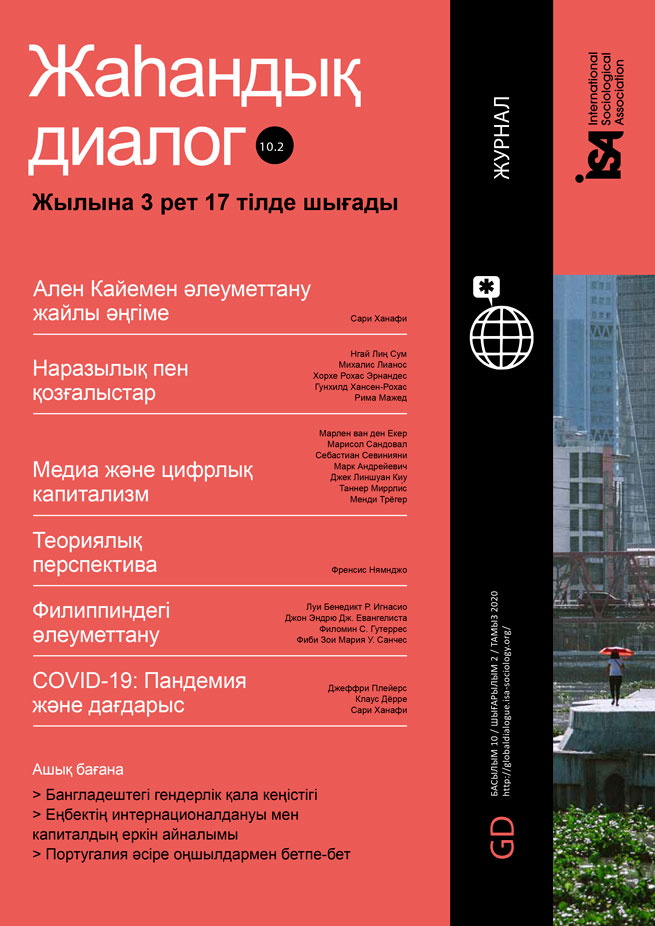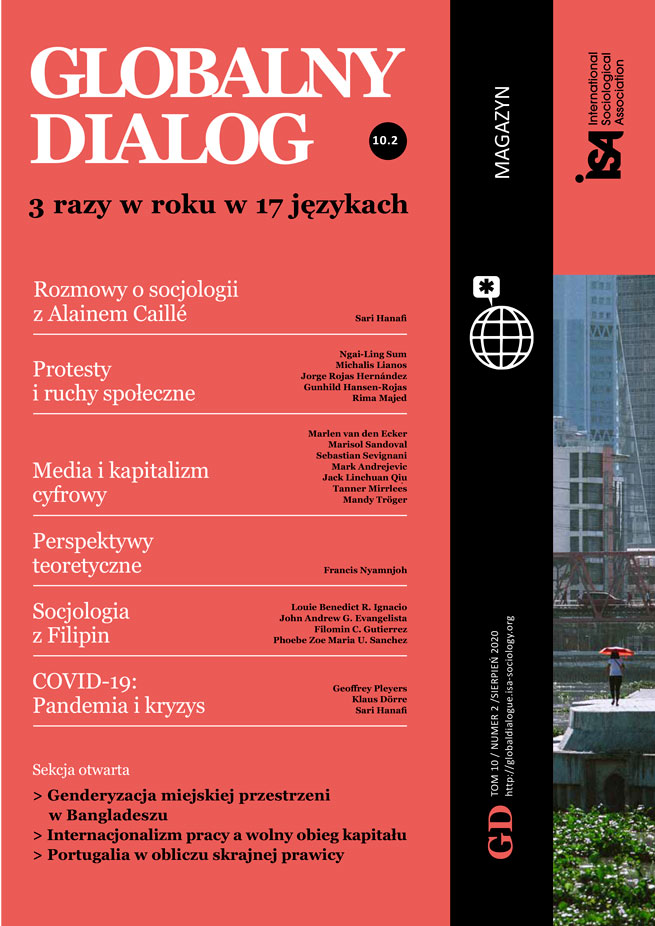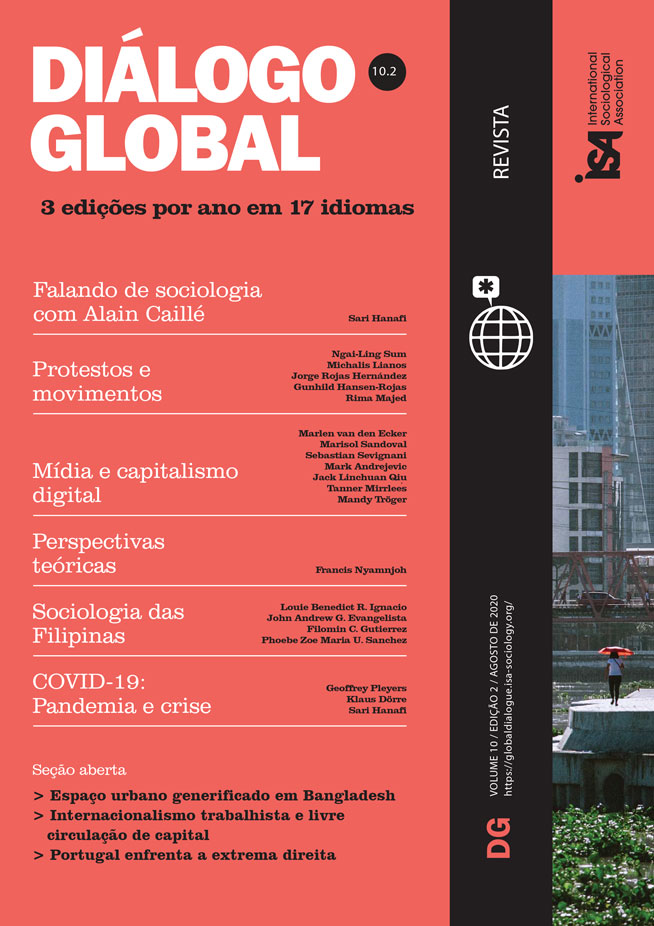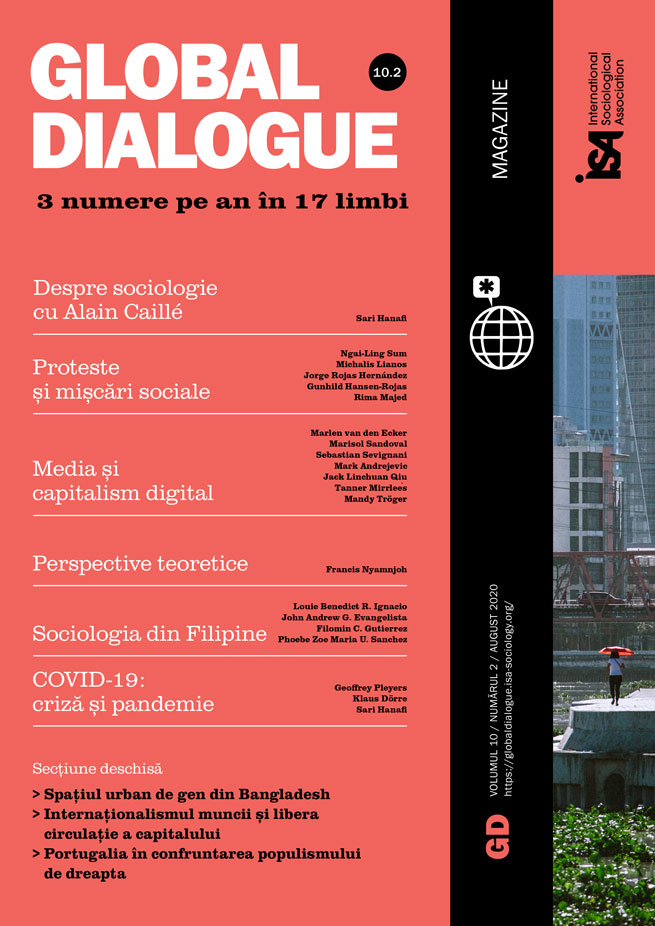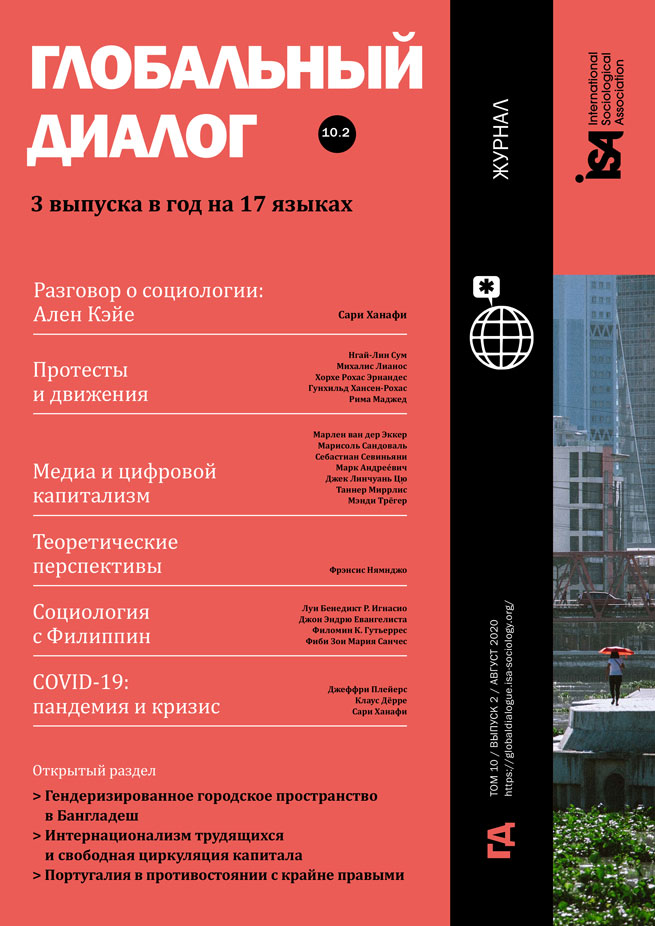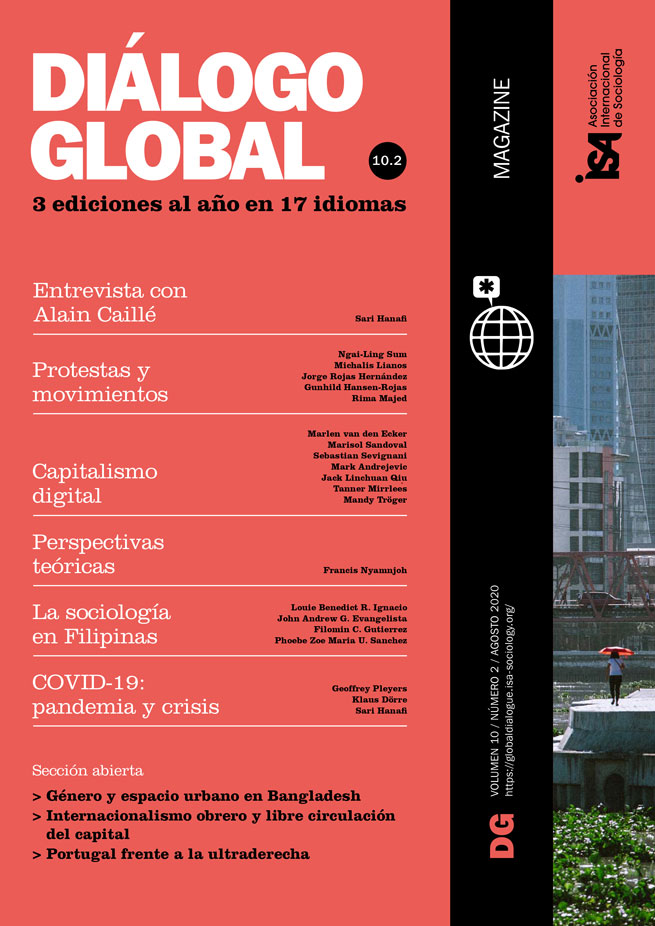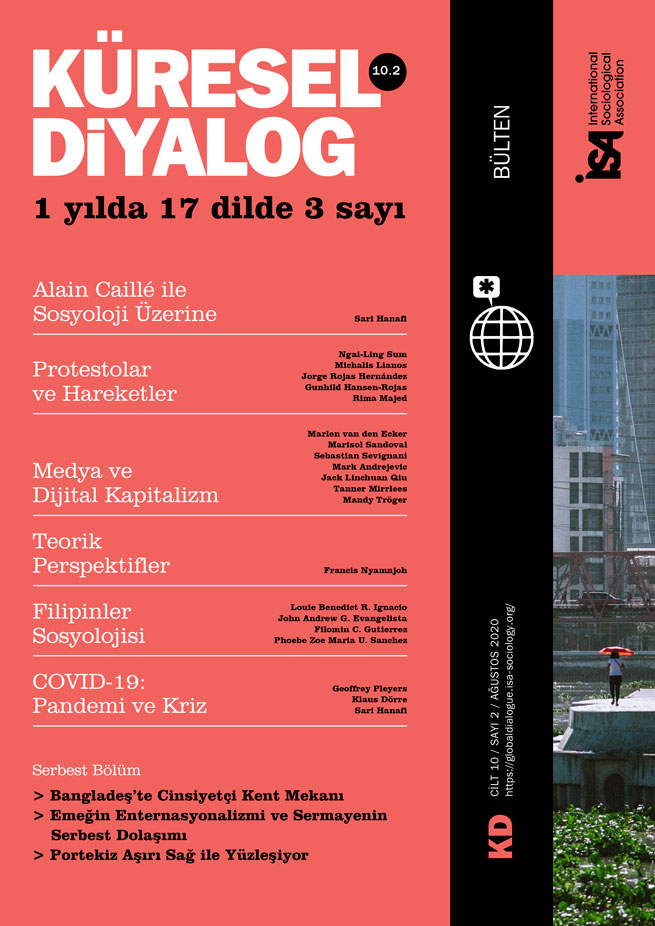Read more about COVID-19: Pandemic and Crisis

Sociology in the Post-Corona World
by Sari Hanafi

Global Sociology in the Pandemic
by Geoffrey Pleyers
June 26, 2020
In April 2020, while I am writing this, the economy is heading towards a recession. Nobody can make an exact prediction about developments in the coming months, as it is uncertain how long the pandemic will last. But it is probably not too far-fetched to anticipate a deep slump in the economy. The only question is how deep the slump will be.
Economic developments and the impacts on labor
In the best-case scenario, the shutdown in most countries will end after one month. Even then, Germany, for example, would have to reckon with falls in growth like those seen during the 2007-9 crisis. According to the ifo Institute for Economic Research, a three-month shutdown could lead to a slump in growth of up to 20%, with up to 5.5 million people in short-time work (what is called Kurzarbeit in German, as employees in Germany are not laid off during a recession but their working hours can be reduced down to 0 while the government pays for some of their lost income). But the many small and micro-enterprises will not be able to survive for long without direct financial assistance. This is a particular problem for areas with a small-scale economy. For a world champion in exports like Germany, it’s uncertain whether there will be a rapid growth spurt after the end of the pandemic. That depends on how quickly other countries, such as China and Germany’s European neighbors, recover. The German federal government’s actions are contradictory: it ought to be interested in rapid aid within the EU, but it is blocking euro bonds as a means of crisis management.
There is much to worry about. Nothing about this crisis is good. It is threatening thousands with death, will cause millions to lose their jobs, and is temporarily depriving billions of people of important basic rights. The longer this pandemic lasts, the more serious its destructive effects on culture, society, and the economy will be. Therefore, the following must apply to large and small companies: no redundancies, but preferably subsidized temporary layoffs. In general, safeguarding employment will be important. In Germany there are tried and tested measures in the form of long-term short-time work.
Production processes depend on cooperation, which includes contact between people; social contacts at work are important for a lot of people. Even a physically demanding, monotonous activity is easier to tolerate when the chemistry between the workers is good. That has now disappeared. “Keep your distance!” basically means a radical de-socialization or even de-communitarization.
On the other hand, in the jobs currently considered to be systemically relevant in hospitals, supermarkets, nursing homes, agriculture, etc., physical contact can hardly be completely avoided. One can follow rules and protect shop assistants with sheets of Plexiglas, for instance, but for everyone who is not working from home, the risk to their health is disproportionally greater. This is one of the reasons why bus drivers, checkout staff, care workers, and nurses are now receiving more appreciation from customers and the general public. One can only hope that this will continue and will in future also be reflected in better pay, more staff, and better working conditions in these areas. In any case, the states that will come through the crisis best are those with a robust health system and a crisis-proof welfare state. This also makes it clear which countries on the European continent will be worst affected by the consequences of this crisis – those in the south and south-east. The high mortality rates of those infected with the coronavirus in Spain and Italy are also linked to the cuts in the health sector forced on them by the European austerity policy.
A weakening of democracy?
The USA is currently the center of the global pandemic. The radical right is naturally attempting to take advantage of the situation. All sorts of conspiracy theories are being spread online. Those who believe them risk not only their own health, but also that of other people. But people will see that wherever right-wing populists such as Trump or right-wing radicals such as Bolsonaro are in power, crisis management is failing completely. I believe, therefore, that the crisis will lead to a huge defeat for right-wing populists and radicals.
Instead, there is a different concern when it comes to democratic processes: Climate change could entail a number of external shocks, which also require large-scale crisis management. We must therefore be careful that the state of emergency does not become the norm. Democracy needs public discussion, debate, demonstrations, and strikes. These fundamental rights must be safeguarded in perpetuity – in spite of crises.
Necessary changes
After corona, the world – and the world of work – will be different. Dogmas of economic policy that have been considered incontrovertible in recent decades have now been swept away: debt ceiling – passé! The “black zero” of a balanced government budget – that was yesterday: public debt is all the rage. This paradigm shift will continue after the pandemic. It was overdue and the corona crisis has only accelerated it. People will also wonder how to interpret the fact that for the second time in ten years, the capitalist market economy has had to be rescued by methods that belong to the non-market economy. It will not be possible to dismiss such events as a “black swan” in future. It will also be easier for all of us to decide what we really need. Even I can live perfectly well without Bundesliga football. But we couldn’t live without bakers, farmers, medical assistants, lorry drivers, and helpful neighbors. This shows that we all need a well-functioning social infrastructure. This must become a well-funded public asset. If you compare the monthly income of professional footballer Jadon Sancho with that of a geriatric nurse, it is immediately clear that something is not right in our society. Social services must be socially upgraded – financially, but also within the recognition pyramid.
Regarding the challenges of climate change, the crisis is degrowth by disaster. As in 2009, climate-damaging emissions and perhaps also the consumption of resources will decrease. Because of the crisis, Germany may even achieve its climate targets after all. However, this has absolutely nothing to do with the revolution in sustainability that we so urgently need. We can see now very clearly that the state is assertive in times of crisis. It can restrict freedoms that we exercise at the expense of others, through mandatory rules, for the benefit of all! But as mentioned above, it is always crucial that state action be subject to democratic decision-making. Freedom has a binding social dimension and this also applies to entrepreneurial freedoms. In the future, these freedoms must be strictly linked to sustainability goals. The one thing that is better than not driving an SUV is not producing it! And better than not exporting military equipment is not manufacturing it in the first place. The examples make it clear: after the crisis, we need a fundamental debate about our economic order – and this debate must not be conducted exclusively by economists and career politicians.
Klaus Dörre, University of Jena, Germany <Klaus.doerre@uni-jena.de>
This issue is not available yet in this language.
Request to be notified when the issue is available in your language.
If you prefer, you can access previous issues available in your language:
